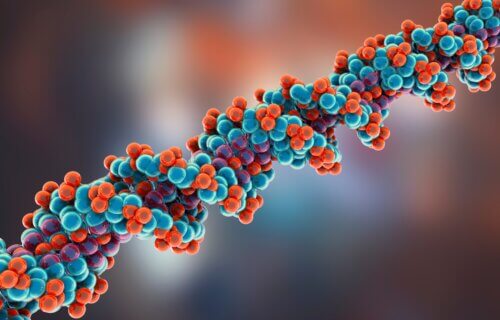BONN, Germany — It’s the oldest marine DNA ever found in deep-sea sediments. Scientists from the University of Tasmania, along with researchers from the University of Bonn, made the discovery in the frigid waters of the Scotia Sea, located north of the Antarctic continent. The sample is estimated to be around one million years old and sheds light on the long-term effects of climate change on ocean ecosystems and provides valuable insights into the current and future state of marine life around Antarctica.
By analyzing sediment samples taken from the deep sea, the international research team was able to uncover the DNA belonging to ancient diatoms. Diatoms are tiny, single-celled organisms that play a crucial role in the marine ecosystem. They are known for their intricate silica shells, which become preserved in sediments over time. The researchers not only identified the type of diatoms present in the sediment but also determined their age, dating back an astonishing one million years.
“This comprises by far the oldest authenticated marine sedaDNA to date” explained Dr. Linda Armbrecht, the lead investigator from the University of Tasmania, Australia in a university release. “Amongst the detected organisms were diatoms as key primary producers whose DNA was detected back to half a million years.”
The significance of this discovery lies in the ability to study the long-term responses of ocean ecosystems to climate change using sedimentary DNA. By examining ancient DNA, scientists can gain valuable insights into how marine life has adapted and evolved in response to shifts in environmental conditions over time. This knowledge is essential for understanding the impact of climate change on current and future marine ecosystems, especially in the icy waters surrounding Antarctica.

Climate change is a pressing issue that affects the entire planet, and the polar regions are particularly vulnerable. The Antarctic, in particular, is experiencing rapid changes due to rising temperatures and melting ice. By studying ancient marine DNA, scientists can better predict how marine life around Antarctica may be affected in the coming years and decades. This knowledge is crucial for developing effective conservation and management strategies to protect these delicate ecosystems.
The research team used advanced genetic techniques to extract and analyze the ancient DNA from the sediment samples. This involved isolating the diatom DNA, sequencing it, and comparing it to modern diatom DNA to determine its identity and age. By carefully examining the genetic material, scientists can gain a deeper understanding of the historical biodiversity in the region and how it has changed over time.
The study’s findings have broader implications beyond the field of marine biology. They demonstrate the power of genetic analysis in studying ancient DNA and unlocking the secrets of the past. This method can be applied to various fields of research, such as paleontology, archaeology, and evolutionary biology, to reveal new insights into the history of life on Earth.
The discovery of one million-year-old marine DNA in Antarctic sediment marks a significant breakthrough in scientific understanding. It highlights the importance of preserving and studying our planet’s delicate ecosystems, particularly in the face of climate change.
The study is published in the journal Nature Communications.
